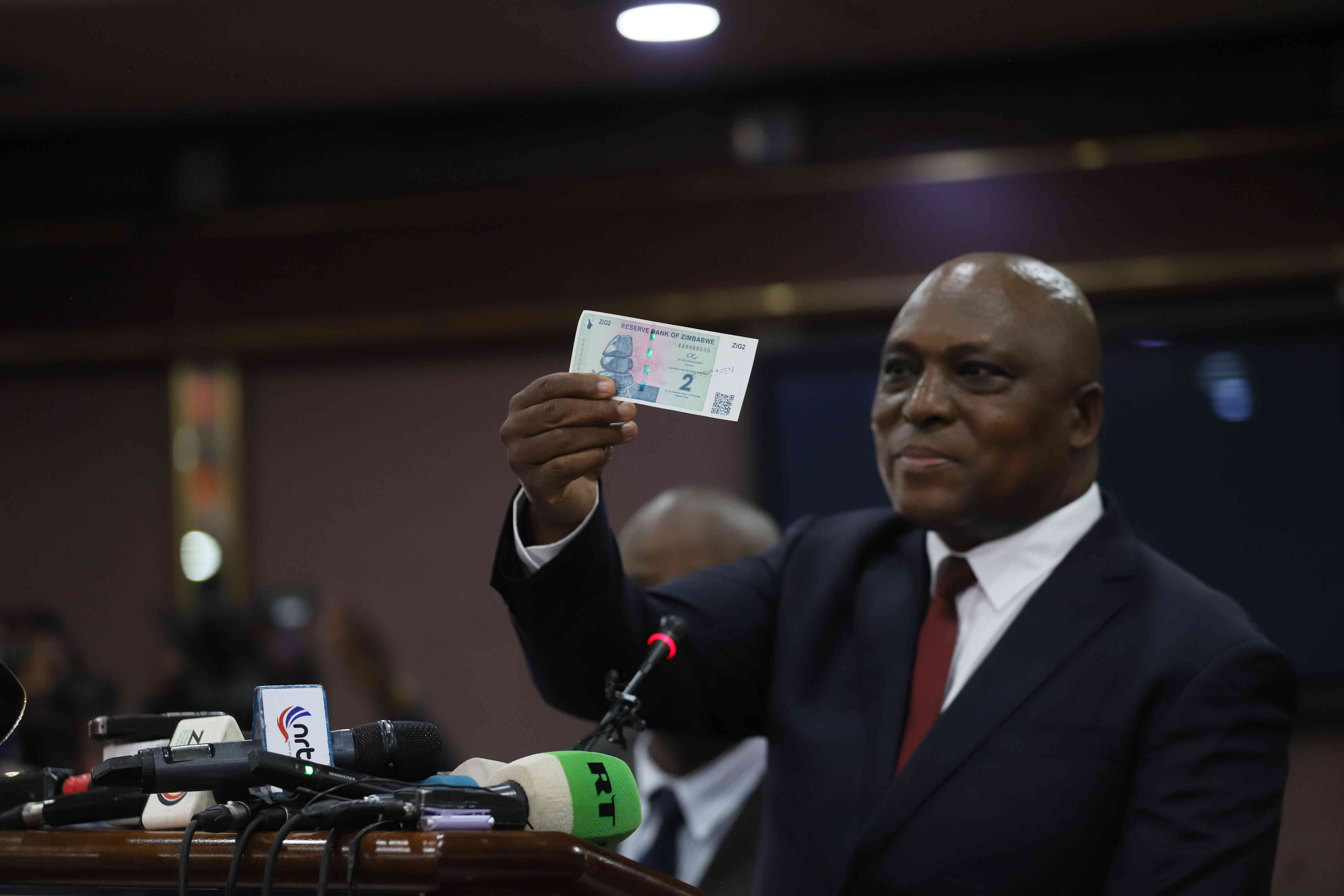The Reserve Bank of Zimbabwe (RBZ) has issued a strong warning to businesses and service providers who are refusing to accept the Zimbabwe Gold (ZiG) currency, with central bank governor Dr John Mushayavanhu decrying widespread disregard of monetary regulations in his 2025 Mid-Term Monetary Policy Statement.
The ZiG, a gold-backed digital and physical currency introduced in April 2024, was touted as a cornerstone of Zimbabwe's efforts to stabilise its economy and reduce reliance on the US dollar. But over a year since its launch, acceptance remains limited - particularly in the vast informal sector, which makes up about 80% of economic activity.
"We have received numerous reports and concerns from stakeholders regarding the rejection of ZiG in transactions. This practice is not only illegal but undermines the efforts of monetary authorities to restore macroeconomic stability," said Mushayavanhu.
He warned that the RBZ and relevant government arms will soon begin enforcement measures to ensure full compliance with legal tender regulations, which mandate the acceptance of ZiG alongside other recognised currencies.
Despite the government's campaign to promote the ZiG, many Zimbabweans continue to favour the US dollar—citing its stability, global acceptance, and track record in protecting value. By contrast, ZiG is still viewed with suspicion, especially after years of currency volatility and inflationary shocks.
In daily trade, especially in informal markets, ZiG is often rejected or only accepted at unfavourable rates, with many vendors insisting on payment exclusively in US dollars. Some businesses even impose hidden surcharges on customers paying in ZiG, further discouraging its use.
"The general public appears to use ZiG primarily for immediate spending—such as utility bills or groceries—while holding onto US dollars as a store of value," noted one Harare-based financial analyst.
The RBZ's hardline stance comes amid a government-led push to end the multi-currency regime by 2030, aiming to re-anchor the economy to a stable domestic currency.
Officials insist the ZiG, backed by the country's gold and foreign currency reserves, is a more secure option than previous local currencies such as the Zimbabwe dollar, which suffered devastating hyperinflation.
"The central bank is committed to ensuring that the ZiG becomes a widely accepted and trusted medium of exchange, store of value, and unit of account," Mushayavanhu said.
However, trust remains a major hurdle, with lingering memories of currency collapses in the past decade leaving both consumers and businesses wary.
The RBZ has pledged to engage stakeholders, intensify public education campaigns, and strengthen monitoring and enforcement of legal tender laws to boost the credibility and circulation of ZiG.
But for now, the ZiG's future hinges on the government's ability to build public confidence, enforce usage without sparking backlash, and stabilise the broader economy.
With only five years left before the 2030 de-dollarisation target, Zimbabwe faces a delicate balancing act: promoting its sovereign currency while navigating the realities of public mistrust and market resistance.
- fingaz
 OK Zimbabwe posts US$17,8 million loss
OK Zimbabwe posts US$17,8 million loss  Hichilema meets Chivayo
Hichilema meets Chivayo  Millions celebrate Diwali festival in India
Millions celebrate Diwali festival in India  Econet Zimbabwe to delist from ZSE
Econet Zimbabwe to delist from ZSE  Gold edges up as traders await guidance
Gold edges up as traders await guidance  Mnangagwa fires Chitando, appoints Polite Kambamura
Mnangagwa fires Chitando, appoints Polite Kambamura  Young Investment Professional (YIP) Graduate Programme 2019
Young Investment Professional (YIP) Graduate Programme 2019 











 Young Investment Professional (YIP) Graduate Programme 2019
Young Investment Professional (YIP) Graduate Programme 2019
Editor's Pick